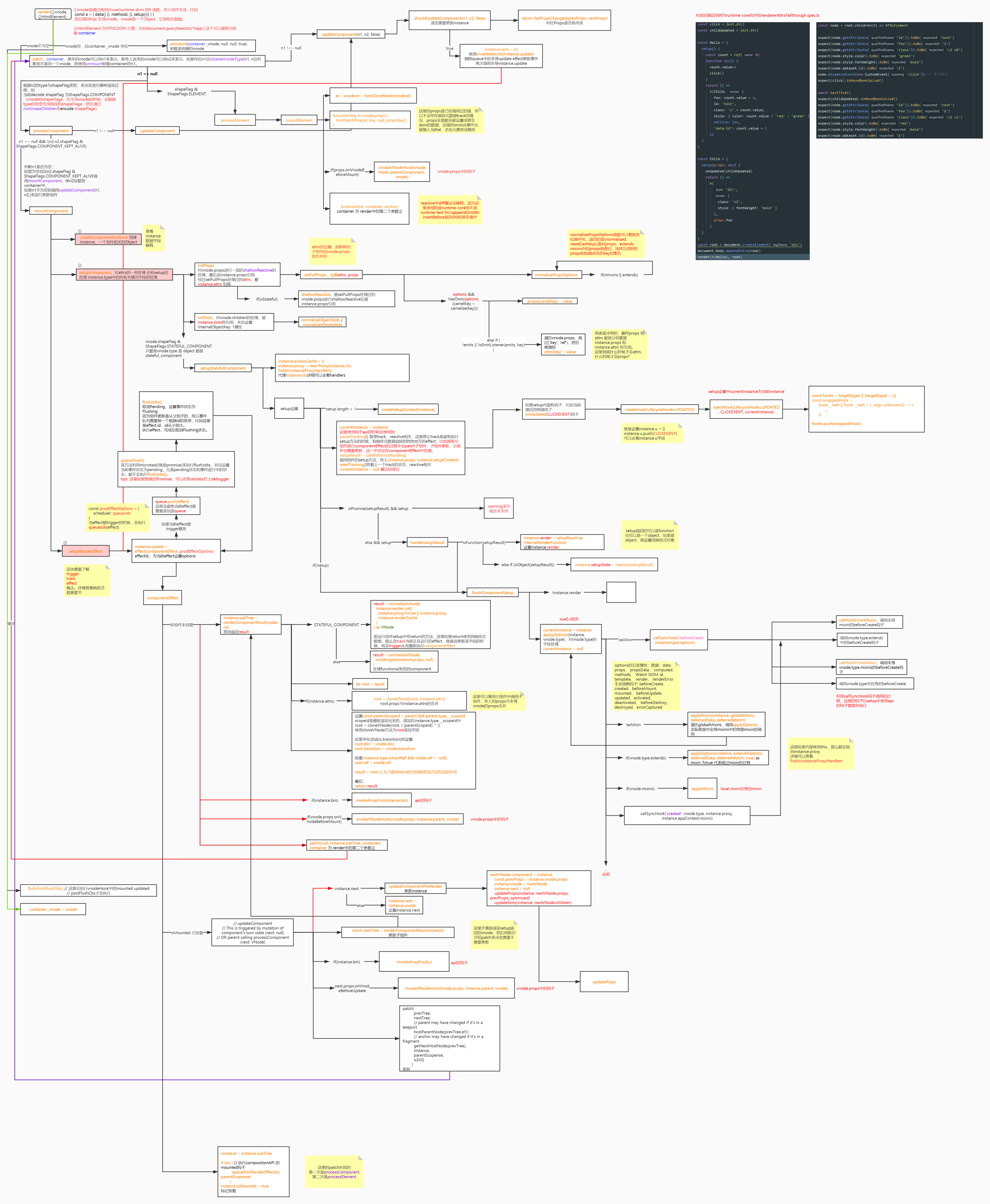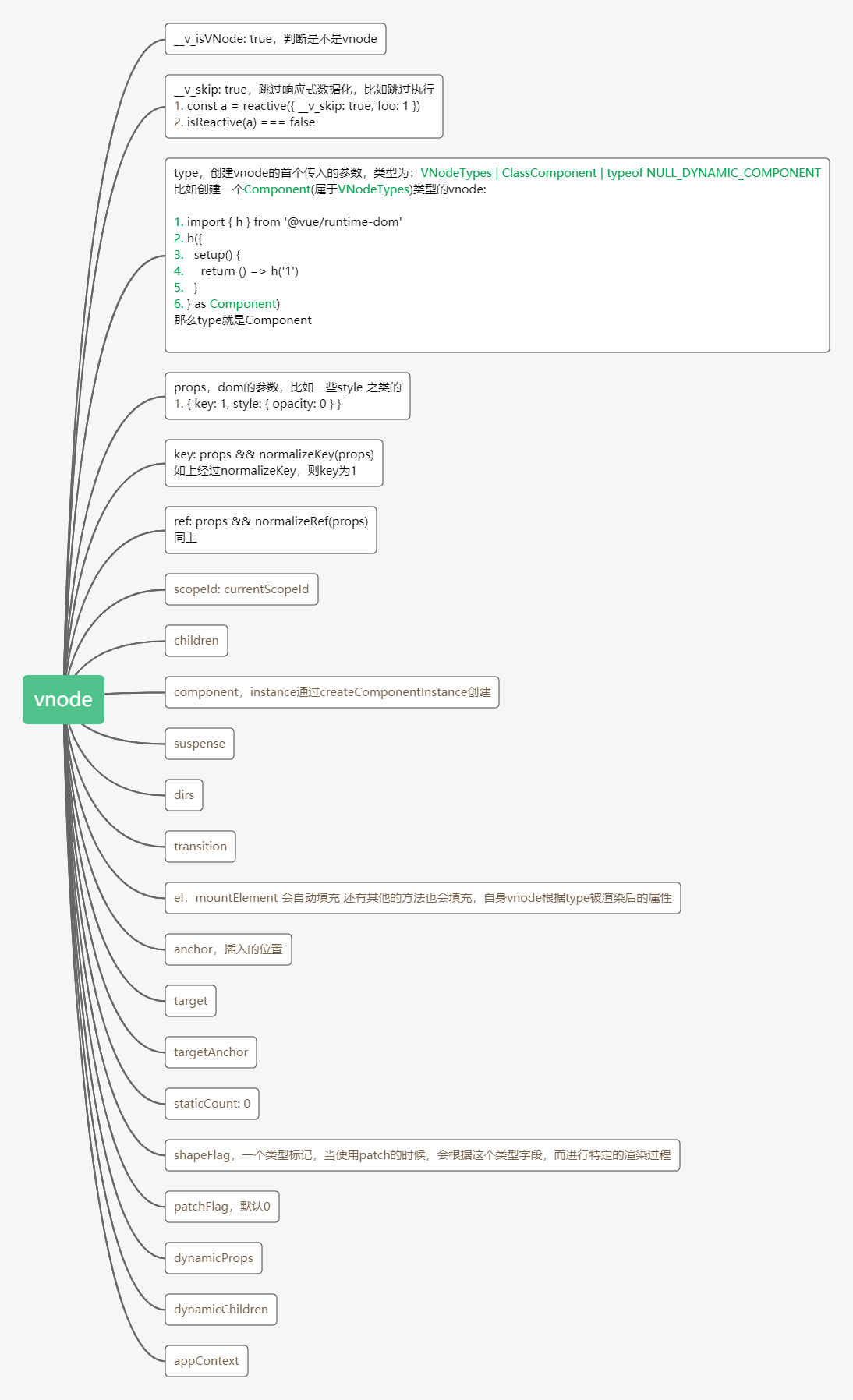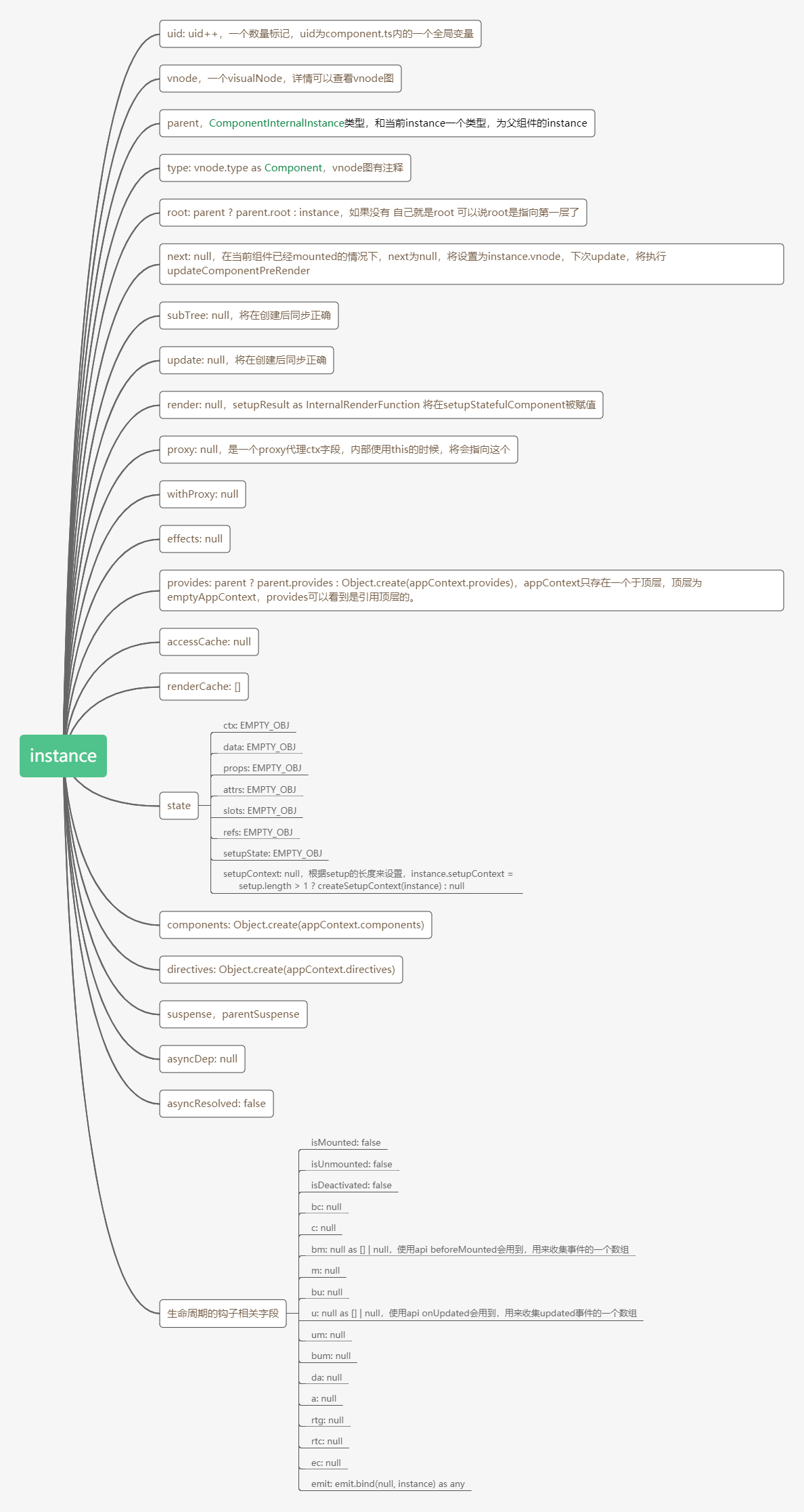测试用例
it('should allow attrs to fallthrough', async () => {debuggerconst click = jest.fn()const childUpdated = jest.fn()const Hello = {setup() { // 如果有render 就优先渲染render了const count = ref(0)function inc() { // 需要了解onClick事件系统count.value++click()}// 这里的任何东西 都不会被本身effect收集 只有return 后的方法 才会return () => // 这里还可以当redner来使用 我平时会的只是 return {} template所需要的事件或属性 所以是检查function 还是 object来判断的吧h(Child, { // 那是不是有一个props effect? 标记也要注意下foo: count.value + 1,id: 'test',class: 'c' + count.value,style: { color: count.value ? 'red' : 'green' },onClick: inc,'data-id': count.value + 1})},mounted() {console.log('?')}}const Child = { // 原来是这样传参数的 那么就不需要this 什么的了setup(props: any) {onUpdated(childUpdated)return () =>h('div',{class: 'c2',style: { fontWeight: 'bold' }},props.foo // 这个为什么是undefinded呢 因为setFullProps执行的时候,判断到的赋值Props方式为attrs,所以instance.props为空)}}const root = document.createElement('div')document.body.appendChild(root)render(h(Hello), root) // 这个render 是'@vue/runtime-dom' 我们之前用的 是'@vue/runtime-test' 里面的 测试用的... 但是区别不一样的就是 会不会初始化而已const node = root.children[0] as HTMLElementexpect(node.getAttribute('id')).toBe('test')expect(node.getAttribute('foo')).toBe('1')expect(node.getAttribute('class')).toBe('c2 c0')expect(node.style.color).toBe('green')expect(node.style.fontWeight).toBe('bold')expect(node.dataset.id).toBe('1')node.dispatchEvent(new CustomEvent('click')) // 事件触发anode.dispatchEvent(new CustomEvent('click')) // 事件触发aexpect(click).toHaveBeenCalled()await nextTick()expect(childUpdated).toHaveBeenCalled()expect(node.getAttribute('id')).toBe('test')expect(node.getAttribute('foo')).toBe('2')expect(node.getAttribute('class')).toBe('c2 c1')expect(node.style.color).toBe('red')expect(node.style.fontWeight).toBe('bold')expect(node.dataset.id).toBe('2')})
processComponent流程图:
https://www.processon.com/view/link/5f85c9321e085307a0892f7e

vnode:
https://www.processon.com/view/link/5f963f37f346fb06e1ec35b2

instance:
https://www.processon.com/view/link/5f963f5fe401fd06fda22681


